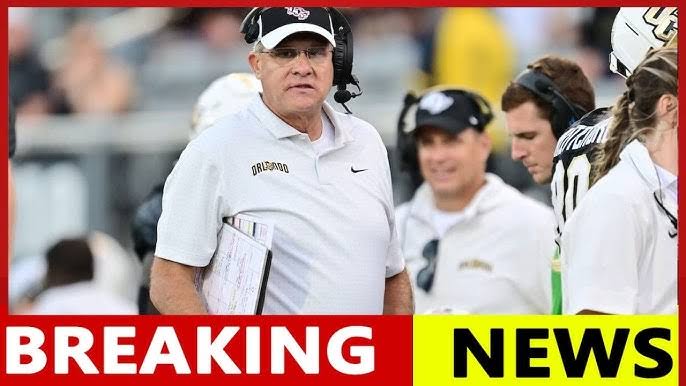In the ever-evolving landscape of college football, coaching decisions often hold the key to a program’s success or stagnation. Recently, Gus Malzahn, head coach of the UCF Knights, found himself in the spotlight after addressing speculation regarding his potential move to the Florida State Seminoles. Malzahn, who has enjoyed a strong tenure at UCF, revealed why he could not finalize a deal with Florida State, shedding light on a complex decision-making process that extends beyond football.
The Rumored Move to Florida State
Florida State, a powerhouse with a storied history, has faced challenges in recent years, particularly in maintaining coaching stability. The speculation of Malzahn as a candidate to take over the program created a buzz among fans and analysts. Known for his innovative offensive schemes and his success at Auburn, Malzahn seemed like a strong fit for Florida State’s vision of reclaiming its dominance in the ACC.
Reports suggested that discussions between Malzahn’s camp and Florida State were advancing, with the Seminoles eager to bring in a proven winner. However, despite the allure of the Seminoles’ rich tradition, the deal ultimately fell through.
Malzahn’s Perspective: Why the Deal Didn’t Happen
In a candid statement, Malzahn explained the reasons behind his decision to remain at UCF rather than pursue the opportunity at Florida State. Central to his rationale was the deep commitment he has developed to UCF’s program and the vision he shares with its administration.
“UCF is a special place,” Malzahn stated. “When I came here, I wasn’t just signing up for a job—I was committing to a movement. We’re building something unique, and I feel a strong responsibility to see it through.”
Malzahn also highlighted the importance of family considerations in his decision. He noted that his family had settled well in Orlando, and uprooting them for another high-pressure job would have been a difficult personal decision.
Financial and Cultural Factors
Sources close to the situation hinted that contractual negotiations with Florida State were a sticking point. While Florida State’s offer was competitive, it reportedly did not align with Malzahn’s long-term career goals. Additionally, Malzahn has expressed his satisfaction with UCF’s recent move to the Big 12 Conference, a transition that has elevated the program’s national profile and created new opportunities for growth.
Malzahn’s emphasis on culture was another critical factor. He has often spoken about the supportive environment at UCF, where the administration and fan base have embraced his leadership. The Seminoles, on the other hand, are under immense pressure to win immediately, which may have presented challenges in aligning expectations.
UCF’s Rising Trajectory
Since taking over at UCF in 2021, Malzahn has revitalized the program, leading the Knights to consistent success and instilling a competitive mindset. His ability to recruit top talent and develop players has set UCF up as a legitimate contender in the Big 12.
For Malzahn, the opportunity to continue building on this foundation outweighed the appeal of starting over at Florida State. “I want to be here when UCF reaches its full potential,” he said. “This is more than a job—it’s a mission.”
The Bigger Picture
Gus Malzahn’s decision underscores the complex factors coaches weigh when considering high-profile jobs. While Florida State remains a prestigious program, the opportunity to create something enduring at UCF proved too compelling for Malzahn to leave behind.
For Florida State, the search for a new leader continues, with the program eager to find someone capable of restoring its former glory. Meanwhile, UCF fans can breathe a sigh of relief, knowing their coach remains committed to their shared vision of success.
Malzahn’s choice reflects not only his loyalty to UCF but also his belief in the power of stability and growth—principles that could define his legacy in college football.


